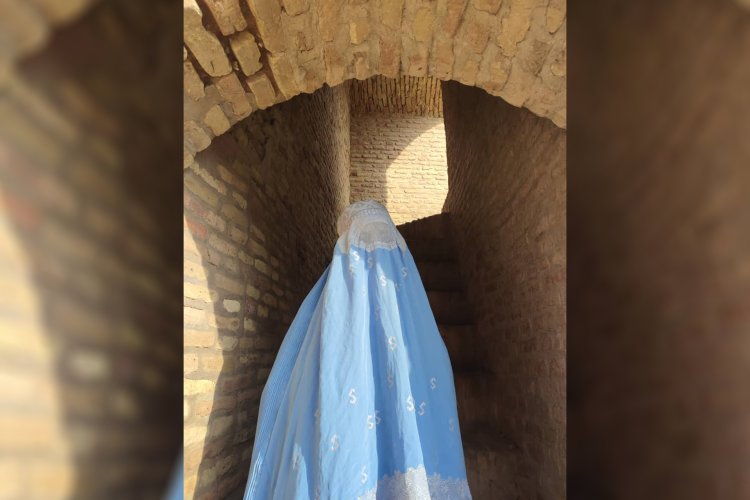The Girls' Story: Does the UN See What I Am Going Through?

“Where is your burqa?”
A Talib barked this at me as he stood guard at the hospital entrance, making sure no woman entered without a veil. His hair was black and greasy, falling to his shoulders; he was tall, dark-skinned, with a long nose and large grey eyes. Half of his face disappeared into his beard. He looked like the monsters from my childhood nightmares—rough, disordered, misshapen. Dressed in military clothes, a gun slung from his shoulder, he stood there with a threatening posture. His tone was angry, full of rage—like a burst of bullets piercing through a person.
And I—my mind full of “but…” and “why…”—stood frozen in place. Stunned. Dizzy, speechless, without the courage to utter a single word. I hesitated for a moment, then stepped back from the entrance. I couldn’t see my loved one, who was on her deathbed.
My mind drifted back to yesterday—to the scene of women being whipped.
Mother had said:
“Be careful when you go out. These are dark times. Your generation has neither luck nor safety. You must stay alert and protect yourself. Yesterday, the Taliban were flogging a woman, and the men just stood there, watching. No one stepped forward. Fear consumed them. A man without courage leaves a woman forever humiliated. If only the men had the courage to face the Taliban—they wouldn’t even dare to lay eyes on women. But what can we do? Men today have no honor left.”
Again the Talib’s harsh voice echoed in my mind: “Where is your burqa?”
Again I worried about my sick loved one waiting for me—how long had she been staring at the door, waiting for me to arrive?
Last night she had said, “A day in the hospital feels like a year. I wish God would either take my life or lift me from this bed.”
I had told her, “It will be alright. Tomorrow I’ll bring you a book.”
The bag of books and food still hung from my hand as I turned back home. My mind had burst open—every sorrow and anger pouring into me, leaving me restless. I walked through this blood‑stained land through the eyes of an Afghan woman, stepping slowly under a rain of grief. The city had become a battlefield, and the men were mere spectators.
Mother sipped her tea, releasing the remnants of her sighs from her chest:
“In the old days there was faith. No one made a spectacle of the dead or spread gossip everywhere. There was no fighting, no shaming. No one found fault with a woman’s dress or a man’s beard. Everyone lived according to their own conscience. Now the world is in ruins. You see a Talib raising his hand against a woman, and no one dares raise their voice. And now they use the burqa as an excuse. Be careful when you go out.”
I came back to myself, realizing I was outside—with no burqa. I wondered if I’d make it home safely. God forbid I attract the wrong attention.
My father worries constantly that I might fall into the hands of the Taliban.
How would he ever face our relatives then?
In his belief, a girl who spends one night outside her home is no longer considered a girl. That ancestral slogan has turned him into a stubborn, unbending man. No matter what you say, it changes nothing. A girl’s hair must not be visible, her laughter must not be loud, and her dress must not be short.
Scenes from my life played through my mind while I didn’t even know where in the city I was. Pity for myself rose within me. When grief rises from the depth of a person, it burns through them—it is fire, it is pain.
What a cruel irony—to find myself crying because I must wear a burqa. How strange. How lonely. Hidden from the eyes of the world.
Does the United Nations see what I am going through?
The organizations and governments are silent, and like the men of my own land, they sit and watch as I perish.
Mother used to say: “When your own people fail you, even God will feel far away.”
